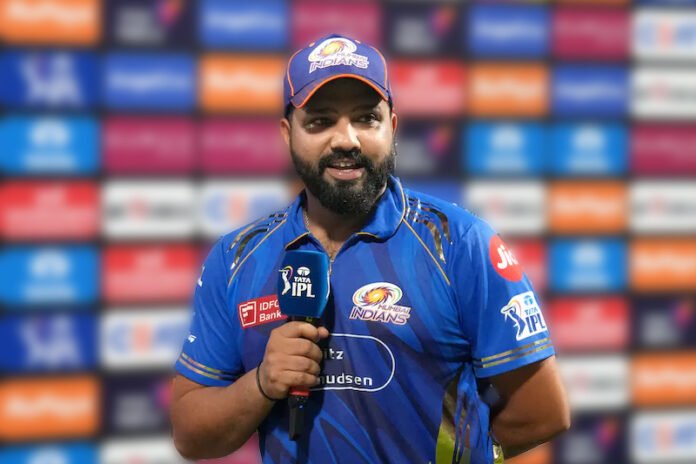In what turned out to be a dominant performance by the Mumbai Indians in Match 50 of IPL 2025, a moment of controversy surrounding Rohit Sharma’s DRS call in the opening overs has become a major talking point, raising questions about the consistency and enforcement of the Decision Review System (DRS) protocol.
The Incident: Rohit’s Narrow Escape
In the second over of Mumbai Indians’ innings against Rajasthan Royals, Rohit Sharma was rapped on the pads by a delivery from Fazalhaq Farooqi. The on-field umpire raised the finger, declaring him out LBW, a decision that momentarily stunned the MI camp. He walked a few steps, consulted non-striker Ryan Rickelton, and then signaled for the review.
However, it wasn’t the use of DRS itself that sparked outrage, it was the timing of Rohit’s call. The ICC playing conditions stipulate that a batter must signal for a review within 15 seconds of the umpire’s decision. Social media users, and later cricket analysts, argued that Rohit’s signal appeared to come after the timer had expired.
Despite the delay, the third umpire accepted the review. Ball-tracking showed that the delivery pitched outside the leg stump, making the LBW call invalid. The on-field decision was overturned, Rohit was declared not out, and he went on to score a crucial 53 off 36 balls, laying the foundation for MI’s mammoth total of 217/2.
The Reaction: Fans Cry Foul
Social media erupted almost instantly. Fans posted slowed-down replays and timer overlays, claiming that Rohit had taken too long to make the call. Hashtags like #DRSgate, #RohitReviewRow, and #TimerBreach started trending on X (formerly Twitter). Many users questioned whether the third umpire had ignored the time limit simply due to Rohit’s stature in the game.
What the Laws Say
According to the ICC’s playing conditions, a fielding or batting side has 15 seconds to request a review from when the umpire decides. In this case, while Rohit didn’t make an immediate visible signal, he did appear to be consulting his partner during that time. The third umpire, it seems, gave him the benefit of the doubt.
This situation has drawn comparisons with other controversial DRS moments, reigniting the debate on whether timer enforcement should be automated or made more transparent for viewers and teams.
Rohit Sharma hasn’t officially commented on the matter yet, but the heat of the debate is unlikely to die down soon. With playoffs looming and fan emotions running high, the IPL finds itself in yet another grey area where technology, timing, and human judgment collide.
Should the IPL enforce a visible countdown timer for DRS calls to ensure transparency?



